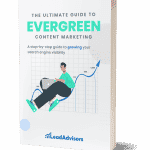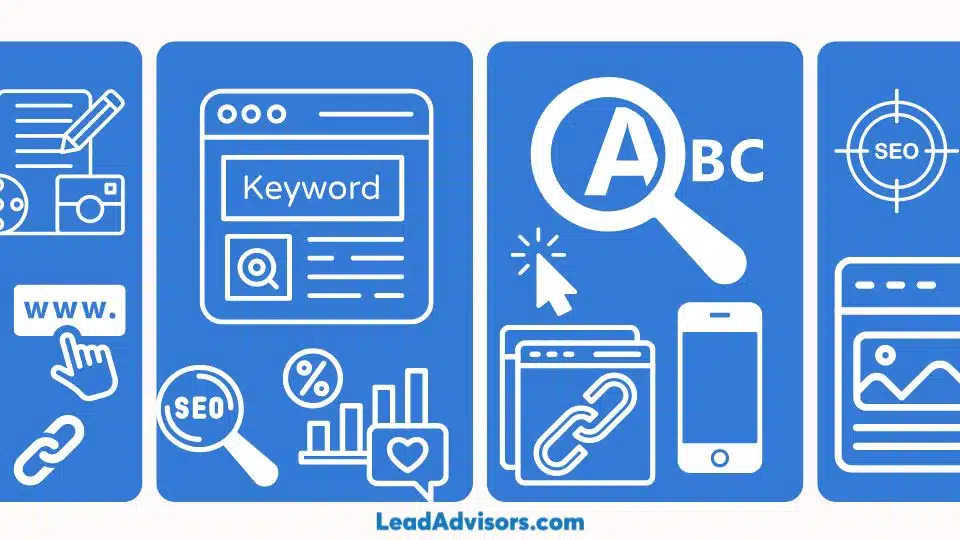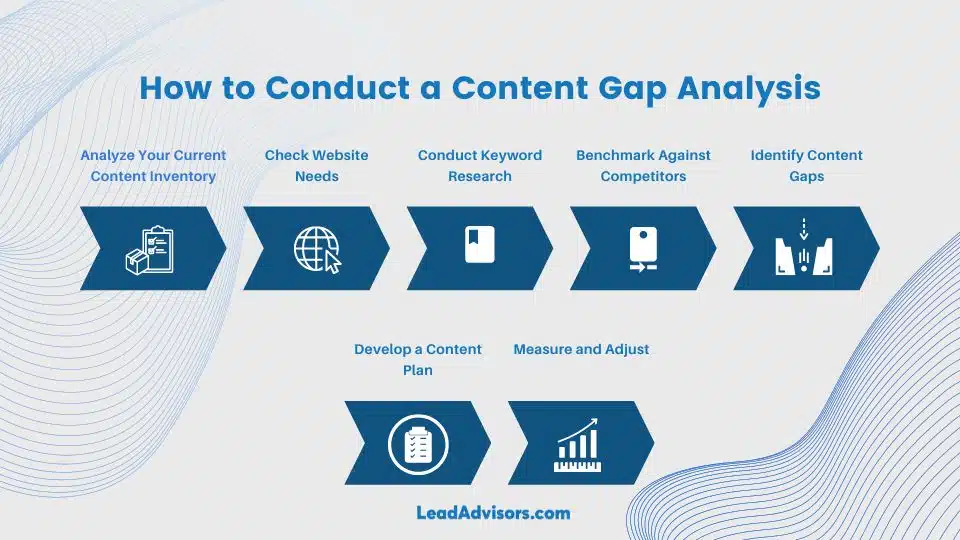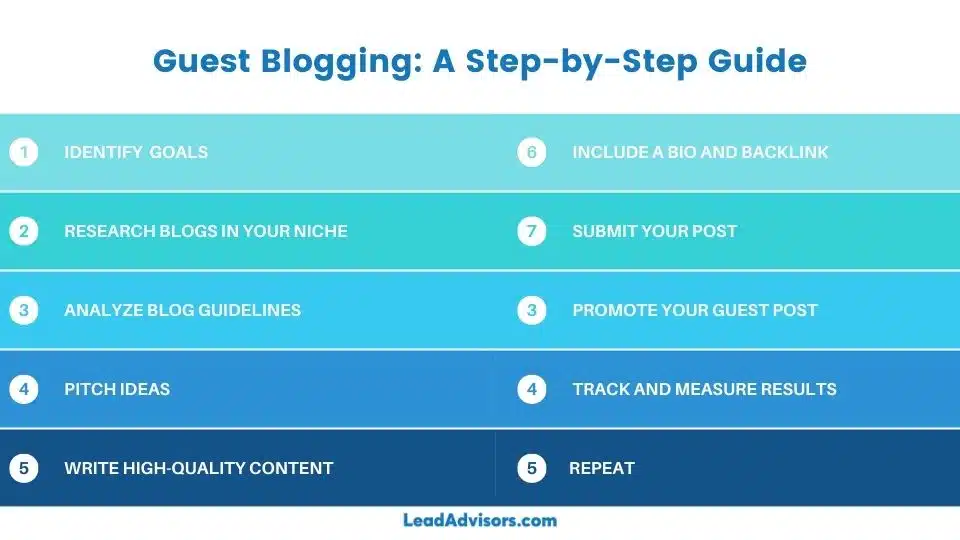The nitty-gritty of how Google algorithms rank content on websites is an ever-evolving process. Hence, ranking content would be a little bit difficult. This is why entire industries are dedicated to understanding, decoding, and keeping up with Google’s ranking.
The problem is that there are hundreds of possible ranking factors. However, finding evidence of what Google considers important makes it possible to separate myth from truth and create a strategy that works.
In this article, we’ll teach you:
- How to rank higher on Google
- How to improve Google rankings
- How can Lead Advisors help you to scale your ranking in Google?
How to Rank Higher on Google?
As you can imagine, Google does what it can to avoid uneducated advice and fraudulent websites in its content ranking. However, any lapses can be incredibly detrimental to a searcher’s well-being, especially when it comes to sensitive topics like health and finances. Because of this, only the highest levels of authority and expertise are served up.
Google provides a guidline to Google employees who rate websites. Part of this document mentions E-A-T, which stands for expertise, authoritativeness, and trustworthiness.
This means web admins must cultivate a reputation for expertise and trustworthiness in a specific area. Google’s search terms algorithms rank websites that demonstrate these three characteristics.
How Do You Rank an Article On Google With Search Engine Optimization?

On the other hand, the effectiveness of on-page SEO on your page is under your control. Page ranking influences such as content, architecture, and HTML can be optimized beforehand. Optimized content refers to target keywords, long-tail keywords, and internal linking. It also relates to content choice and depth, the authoritativeness of the content, and the overall user experience.
Good SEO is not dependent on just a single factor. It works in conjunction with other factors, like using alt text in images, to better rankings. Remember that even the most optimized content will not rank highly if it does not answer questions meaningfully and creatively.
Target Relevant Keywords On Search Engines

You must research your audience’s user search intent to include keywords they use to describe your product or service. You can even look into related searches your audience might be using for your keyword research. Then, use analytics like Google Webmaster tool (also known as Google Search Console) to find out what target keyword people use to find you.
That way, you’re able to fully understand your organic traffic and target them more effectively. One major bonus to the Google Webmaster tool is that it’s one of the free tools offered, so you can stay within your budget.
Also, you should check how your competition is targeting their keywords. Researching other sites provides insight into the keywords you might want to rank for and provides fresh content ideas. They might even help you find a seed keyword your niche uses or hidden keywords you haven’t utilize yet. From here, it is possible to strategize your next content and target a particular niche.
One thing to note is how competitive a keyword is. The more competitive keywords are used more by other businesses. The likelihood of you ranking for an exact keyword gets slimmer the more competitive it is.
Don’t lose hope, though! Less-used keywords can boost your own site and allow you to chase after more competitive ones.
Write Engaging Content

Ideally, both boxes should be ticked to bring in more traffic.
Moreover, presenting your content is critical in making sure the information is consumable and visually appealing. Some common formats include listicles like top 100 lists, how-tos, tutorials, news articles, and opinion pieces.
When you create an outline of your posts, filter out unnecessary details and focus your post on topics you want to include. Be sure to use a title tag and headings, which help readers and help search engines alike.
Headings act as signposts to define the parts of your content which are most important. They also show how your different points intersect.
An engaging post also starts with a stellar introduction. Your introduction must include a hook that acknowledges the reader’s query and leads to useful information quickly. Your content should spark curiosity and should flow as a story.
An engaging piece of great content also appeals to multiple senses. Include high-quality and relevant images and other kinds of media to illustrate your points, and make sure to add corresponding alt text per image.
Another thing to consider is length. Your content won’t garner attention if it’s a single page. Part of quality content is ensuring that you answer a user’s query in its entirety.
If you want to add authority to your website, you can use guest posting for your web pages. Guest posting is when you allow publishers from outside your brand to publish content on your website. This boosts your organic traffic as the publisher’s users come to your site.
Research Your Facts With Google Analytics

Conversely, someone searching for “how to bake cookies” is looking to learn. Results from this query show tutorials and how-to videos. By knowing Google results for the keyword you rank well for, you can make sure the high-quality content you create matches the relevant content shown in Google’s first-page local search results.
Research also means using seo tools like Google Analytics to capitalize on your strong points. With a google analytics account, you can find all kinds of useful information. For example, you can find the keywords people use in the “Traffic Sources” tab to find your site through Google search results.
This information is very valuable. When you know the keywords used to find your website, you can optimize your content to target these keywords.
Another important analytics data is organic search volume. Nobody will find your quality content if no one searches the keywords you are targeting. You can find keyword search volumes to target using Google Keyword Planner.
Optimize For SEO

While not an active ranking factor, it does improve clickthrough rates. Meta descriptions are ideally between 150 to 160 characters and usually begin with a verb like “Learn,” “Read,” or “Discover.”
Page titles and headers are some of the most important on-page elements at your disposal. Most blogging software uses your post title as the page title, so try to include your keywords here organically. Headlines are short and should be capped at 65 characters.
Take extra care with your linking strategy, particularly anchor texts or words that link to other pages. These can be internal links to other pages on your website or external links to source materials. This active ranking factor should be part of your link-building strategy. In the case of internal links, be sure to select keywords you are actively ranking for.
A great way to keep track of your SEO is to create an SEO checklist you can go back to as you routinely check your optimization.
Another type of optimization to look into is local SEO. That’s where your optimization focuses on your business’s location. This type of SEO is great for local businesses on Google Maps and looking for local search traffic.
Create a User-Friendly Interface

Also, Google recommends that you create easy-to-read content on a well-organized site. They also recommend featuring a responsive design that has no intrusive ads.
Google wants content creators to do everything in their power to create the best search results for the keywords they are targeting.
How to Improve Google Rankings
Improve your Google ranking higher through backlinks and on-page optimization. Google content ranking uses algorithms to display the best results for every query.
While off-page factors like backlinks increase a website’s trust, on-page factors help a web page earn more relevant traffic.
With deliberate care and tools, content creators like you can craft every piece of content to earn more relevant traffic.
Final Thoughts
Ranking Content on Google requires a solid understanding of SEO and Google’s ranking factors. Building expertise, authoritativeness, and trustworthiness through optimized content are key. To optimize your content, use target, long-tail, and internal linking while creating engaging content that provides value to the reader.
Research your audience’s user search intent to guide your keyword research, and consider guest posting to boost your website’s authority. Lastly, ensure your content is backed up with reliable facts and data. By following these tips, you’ll be on your way to achieving Google’s top search results.
If you need help in ranking your content in Google, at Lead Advisors, we specialize in helping businesses improve their online presence and increase their visibility on search engines. With our team of experienced SEO professionals, we can help you develop and execute a customized SEO strategy that meets your unique needs and goals.
If you’re interested in learning more about our services, please visit our website at leadadvisors.net. Let us help you take your online presence to the next level and achieve your business objectives.
Remember, ensuring your content ranks on Google takes time and dedication. By targeting specific keywords, researching facts, and optimizing your SEO, your site will be in the top ten search engine results in no time.
FAQs
Yes, technical SEO helps page ranking. With it, search engine bots, or “spiders,” are able to crawl through your page and rank it accurately.
Guest posts improve ranking through the relevant links they give to you. With enough links, your website will be seen as an authority on the theme or topic of your site. If you’re seen as an authority on a subject, then you rank higher.
Both branded content and guest posts have the same goal in mind-bring in more leads. Branded content is created to bring more people to the site through links and backlinks. Likewise, guest posts use content from guests to present your site as an authoritative voice online, bringing more people to the site and boosting your rating.
Your ranking won’t change with one guest post. To present your site as an authority on a subject, figure out how many guest posts you would like on a monthly basis. Eventually, visitors will see your site as a great resource for information.
Longer content is always the best way to go. The longer or heavier a blog post is, the better chance it has for its SEO optimization to rank it.
Updated: April 25, 2023














